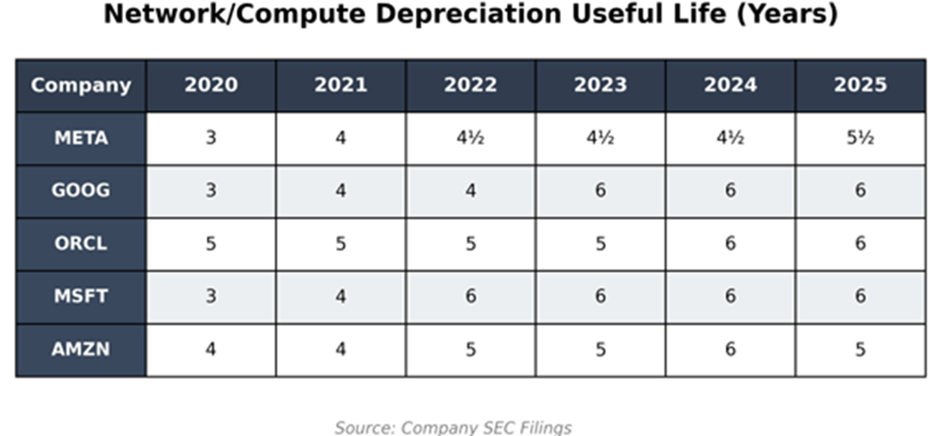This Wall Street icon is actively betting against AI

Whenever infamous short-seller Michael Burry bets against a stock, everybody pays attention. He built his reputation as a fabled short-seller after predicting the housing crisis that preceded the Great Recession.
Now, Burry has turned his attention towards what he believes is a massive bubble in AI. Thus, he placed short positions in AI giants Nvidia (NVDA) and Palantir (PLTR).
Since then, he’s begun an all-out tirade against Meta (META), Alphabet (GOOGL), Oracle (ORCL), Microsoft (MSFT), and Amazon (AMZN).
Investor Essentials Daily:
The Monday Macro Report
Powered by Valens Research
When Michael Burry shorts a stock, everybody pays attention. The fabled short-seller became a household name for predicting the housing crisis that preceded the Great Recession.
His hedge fund, Scion Capital, netted $725 million for its investors that year and he personally took home $100 million betting against housing.
Over the past few years, he made short calls against struggling video game retailer GameStop (GME), which he closed before it became a meme stock.
Now, Burry has started focusing on what he believes is a massive bubble in AI.
Just a few weeks ago, he announced short positions in AI giants Nvidia (NVDA) and Palantir (PLTR).
Since then, to defend his bet, he has begun an all-out tirade against the big tech hyperscalers, causing a lot of investors to worry.
Burry published a chart featuring all five major hyperscalers: Meta (META), Alphabet (GOOGL), Oracle (ORCL), Microsoft (MSFT), and Amazon (AMZN). It shows how each company’s depreciation useful life for server and networking assets has changed since 2020.
Across the board, the hyperscalers have increased the useful life of these assets. The median was three years in 2020. Now, the median is six years.
Take a look…
In other words, hyperscalers across the board expect their assets to last twice as long as they used to.
This kind of thing is only published in the company’s annual filings. It’s not going to make headline news or make it into quarterly presentations. And typically, nobody but accountants would care.
Burry outright labeled this fraud. He’s worried about inflating valuations and profitability for some of America’s largest companies.
The useful life of assets determines how fast owners have to depreciate those assets. And Burry doesn’t buy the story that hyperscaler assets last twice as long as they used to.
These companies are spending billions on new data centers filled with powerful chips, including Nvidia’s top-of-the line GPUs. In his opinion, these kinds of assets still deserve a three-year lifespan.
Thus, Burry thinks the hyperscaler companies are playing games to boost their earnings. According to him, this seemingly small change has the potential to understate these companies’ depreciation expenses by $176 billion in the next three years.
It could overstate Oracle’s earnings by up to 27% and Meta’s by 21% in 2028.
If Burry’s thesis is proven correct, it could send tech stocks tumbling. He’s currently shorting several AI-related stocks, so he also stands to gain if investors start doubting numbers in the AI industry.
Burry hasn’t revealed all of his cards yet. Until then, there are still lots of reasons to be bullish on hyperscalers and AI as a whole.
Best regards,
Joel Litman & Rob Spivey
Chief Investment Officer &
Director of Research
at Valens Research

